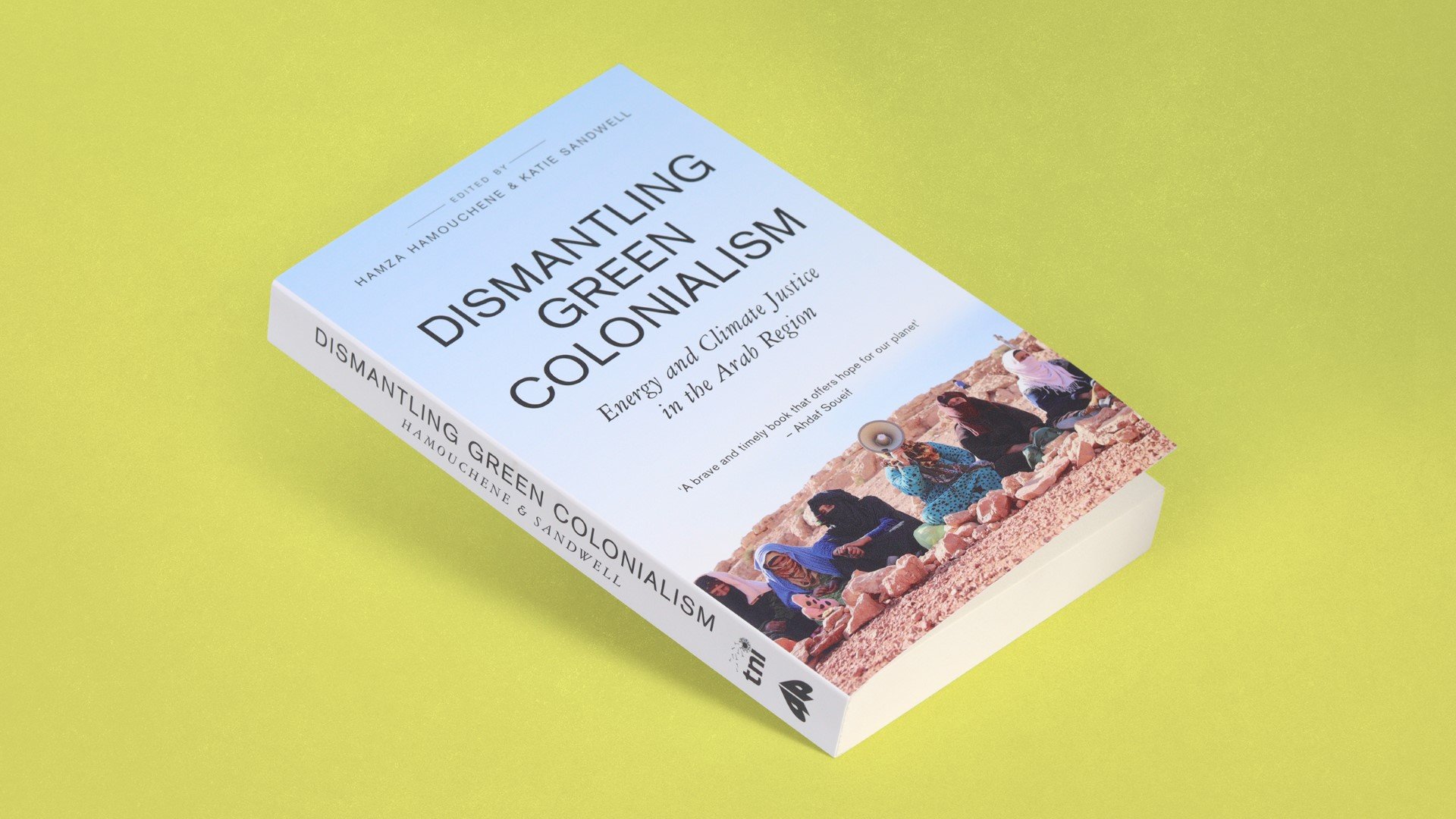New Chapter in Upcoming Collection on Energy and Climate Justice in the Arab World
Building on his research as part of the 'Mapping Connections' project, Adam Hanieh has a new chapter in the upcoming volume, Dismantling Green Colonialism: Energy and Climate Justice in the Arab Region (Pluto Books/TNI, 2023), co-authored by Hamza Hamouchene and Katie Sandwell. Hanieh's chapter, entitled 'A Transition to Where? The Gulf Arab States and the New 'East-East' Axis of World Oil', explores the deepening hydrocarbon connections between the Gulf states, China, and East Asia, in the context of the urgent need for a just green transition. It argues that climate activists need to place much more attention on the rise of large National Oil Companies (NOCs) in the Gulf and China, which is part of an important geographical realignment that he describes as a new 'East-East axis' of world oil. The book as a whole explores the importance of fighting for a just energy transition and climate justice across the Arab region, particularly given the ongoing realities of authoritarian regimes, large fossil fuel reserves, and histories of colonialism and imperialism.
Dismantling Green Colonialism will be released on October 20 in advance of the COP28 summit in the United Arab Emirates. It is available for pre-order on the Pluto website at https://www.plutobooks.com/9780745349213/dismantling-green-colonialism/. An Arabic version of the book will also be published by Dar Sefsafa in October 2024, and the book is also forthcoming in French and Spanish.
The book has been endorsed by a range of prominent authors and activists, including Jason Hickel, economic anthropologist and author of 'Less is More', who says that it 'demonstrates that the climate crisis - along with mainstream responses to it - is playing out along colonial lines. It's time to face up to this reality and build an anti-colonial struggle in response.' 'Mapping Connections' Advisory Board member, Laleh Khalili, has also endorsed the book, writing, 'this groundbreaking volume by scholars deeply embedded in the region's political and knowledge production milieus, offers a timely, indeed acute, analysis of what a just transition might mean for the region. The authors examine in theoretically and empirically rich essays contestations over the Sahara, greenwashing Israel's colonisation of Palestine, agricultural and mineral extractivism, green capitalism and finance and a range of other urgently pivotal subjects.'

